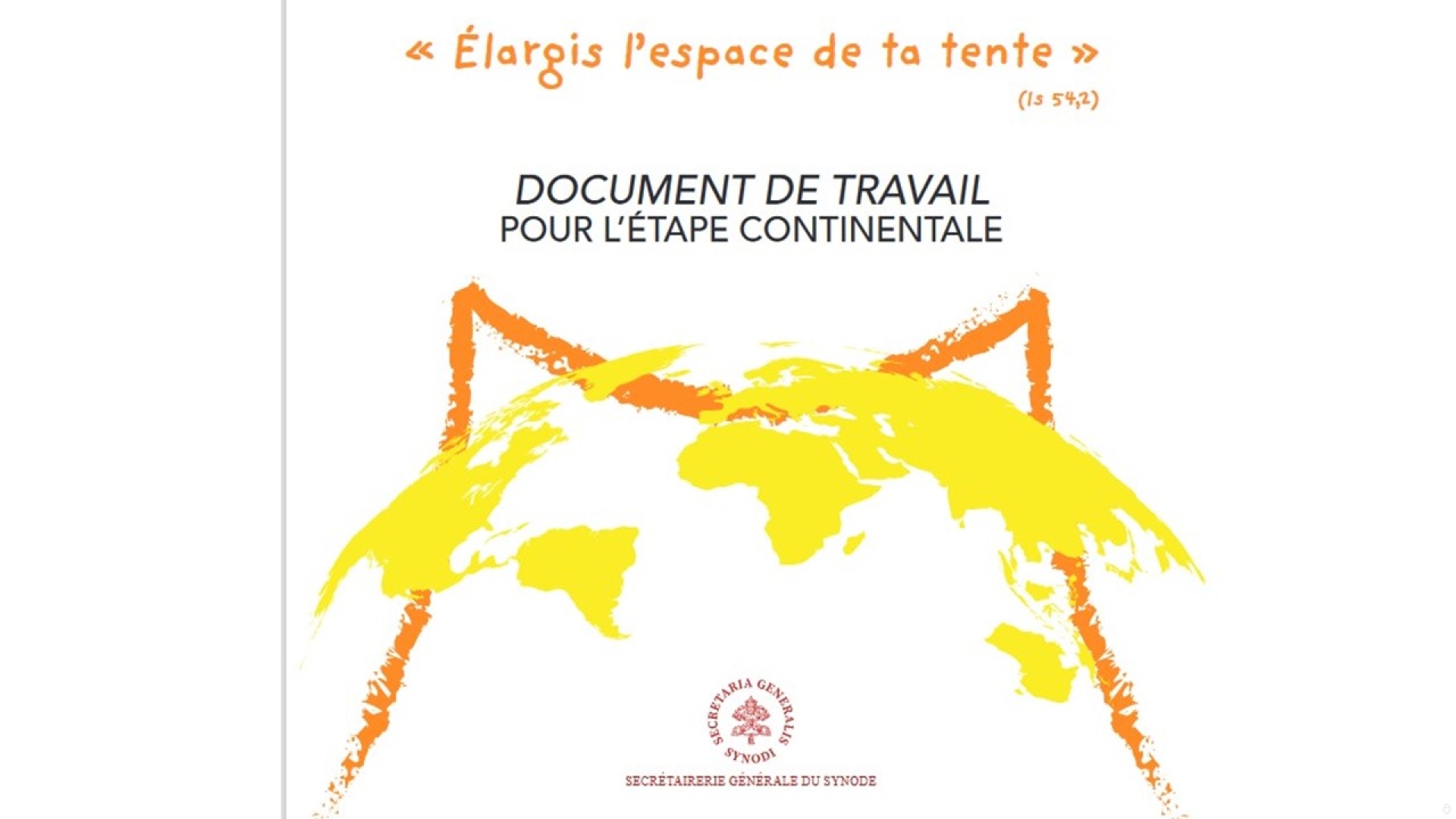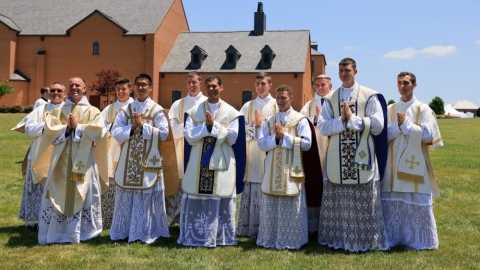Cardinal Pell's Posthumous Warning

The British political weekly The Spectator published an article on Wednesday January 11, 2023 by Cardinal George Pell, written shortly before his death. In it, the now-deceased porporato strongly denounces the Synod on Synodality. He comments on the synthesis document that will be used for the rest of the Synod, saying that it is “one of the most incoherent documents ever sent by Rome.”
It should be noted that the former Archbishop of Melbourne no doubt could not have foreseen his imminent death, and that he wrote this article assuming in advance that reactions would arise in Rome, both from the pope and from those responsible for the Synod. And so, this article takes on the tone of a message from beyond the grave.
A “Sick Nightmare”
The Cardinal describes the Synod on Synodality from the outset as a “toxic nightmare” – or a sick one. His article is a commentary on the synthesis of the first phase, produced by the secretariat of the Synod: a 45-page booklet entitled “Enlarge the Space of Your Tent.”
But he notes, “the aim of doing so is to accommodate, not the newly baptized - those who have answered the call to repent and believe - but anyone who might be interested enough to listen. Participants are urged to be welcoming and radically inclusive: ‘No one is excluded.’” No exhortation to convert or to preach the Saviour.”
Synodality is not defined, but it must be lived. “It revolves around five creative tensions, starting from radical inclusion and moving towards mission in a participatory style, practicing ‘co-responsibility with other believers and people of good will.’”
The commentary notes that “the people of God need new strategies…where the distinction between believers and unbelievers is rejected. …Because of differences of opinion on abortion, contraception, the ordination of women to the priesthood and homosexual activity, some felt that no definitive positions on these issues can be established or proposed. This is also true of polygamy, divorce and remarriage.”
Cardinal Pell calls this hodgepodge “a potpourri” an “outpouring of New Age goodwill. It is not a summary of Catholic faith or New Testament teaching. It is incomplete, hostile in significant ways to the apostolic tradition and nowhere acknowledges the New Testament as the Word of God.… The Old Testament is ignored, patriarchy rejected and the Mosaic law, including the Ten Commandments, is not acknowledged.”
Two Points
The deceased prelate makes a first point that “the two final synods in Rome in 2023 and ’24 will need to clarify their teaching on moral matters, as the Relator (chief writer and manager), Cardinal Jean-Claude Hollerich, has publicly rejected the basic teachings of the Church on sexuality, on the grounds that they contradict modern science. In normal times this would have meant that his continuing as Relator was inappropriate, indeed impossible.”
He then remarks that “the synods have to choose whether they are the servants and defenders of the apostolic tradition on faith and morals, or whether their discernment compels them to assert their sovereignty over Catholic teaching.” In other words, if they want to defend this teaching, or if they want to park it “in a pluralistic limbo.”
Finally, he notes a general relaxation of discipline, especially in Northern Europe. He recalls that “a few bishops have not been rebuked, even after asserting a bishop's right to dissent; a de facto pluralism already exists more widely in certain parishes and religious orders on things like blessing of homosexual activity.”
The Role of Bishops
The cardinal recalls that “diocesan bishops are the successors of the apostles, the chief teacher in each diocese and the focus of local unity for their people and of universal unity around the Pope, the successor of Peter…. They are governors and sometimes judges, as well as teachers and sacramental celebrants, and are not just wall flowers or rubber stamps.”
As for the document “Enlarge the Tent,” he considers “that pyramid models of authority should be destroyed and that the only genuine authority comes from love and service. Baptismal dignity is to be emphasized, not ministerial ordination, and governance styles should be less hierarchical and more circular and participative.”
But, recalls the former member of the Council of Cardinals, “the main actors in all Catholic synods (and councils)…have been the bishops.…Bishops are not there simply to validate due process and offer a ‘nihil obstat’ to what they have observed.”
The rest of the commentary takes issue with the development of the Synod: “To pass on only the organizing committee’s views to the Holy Father for him to do as he decides is an abuse of synodality, a sidelining of the bishops, which is unjustified by scripture or tradition. It is not due process and is liable to manipulation.” The cardinal notes that practicing Catholics are not enthusiastic, nor are many bishops.
He makes this interesting remark: “The ex-Anglicans among us are right to identify the deepening confusion, the attack on traditional morals and the insertion into the dialogue of neo-Marxist jargon about exclusion, alienation, identity, marginalization, the voiceless, LGBTQ as well as the displacement of Christian notions of forgiveness, sin, sacrifice, healing, redemption. Why the silence on the afterlife of reward or punishment, on the four last things; death and judgment, paradise and hell?”
He ends with an urgent appeal: “This working document needs radical changes. The bishops must realize that there is work to be done, in God’s name, sooner rather than later.”
(Sources : InfoCatolica/The Spectator – FSSPX.Actualités)
Illustration : synod.va





